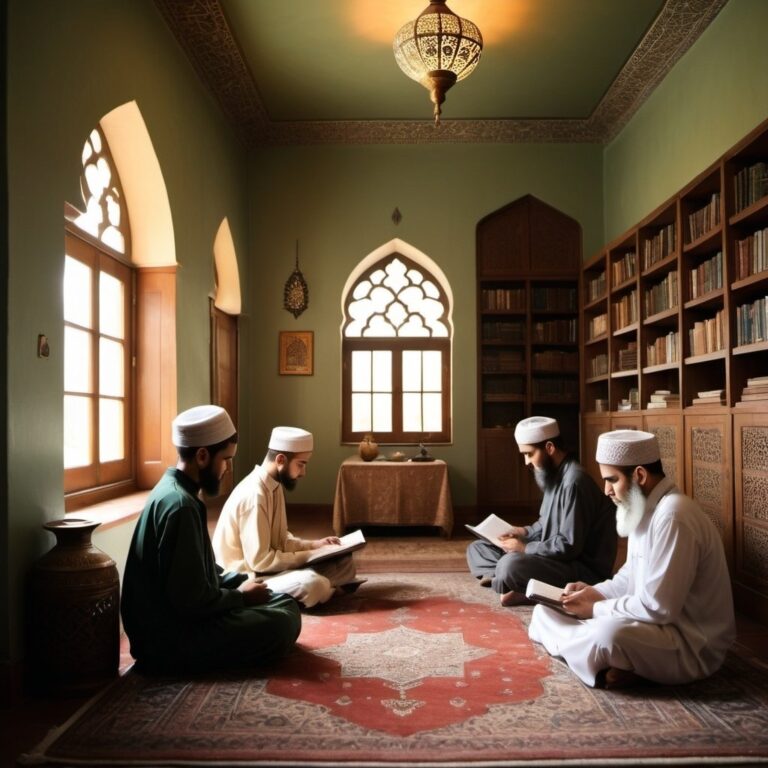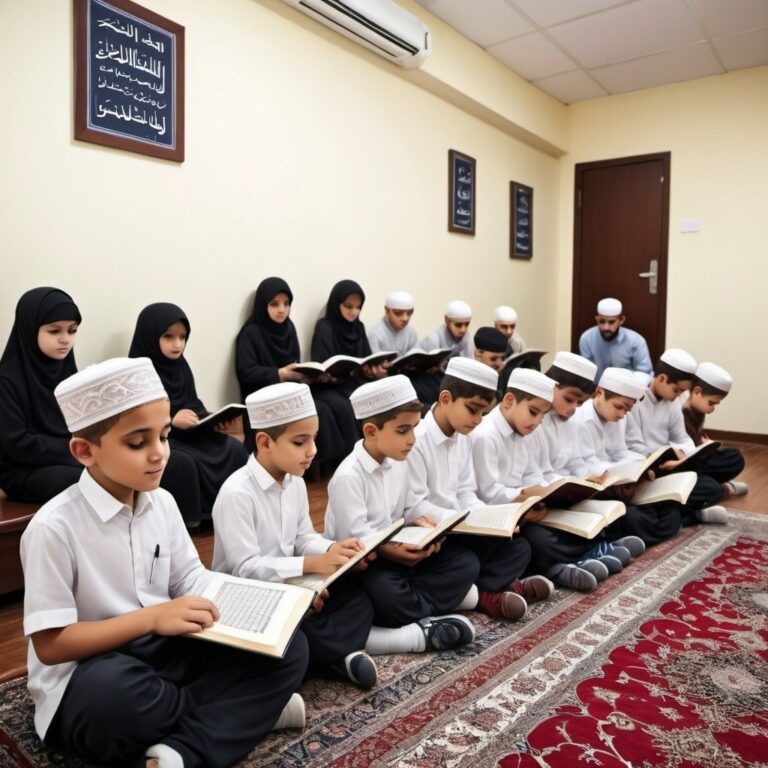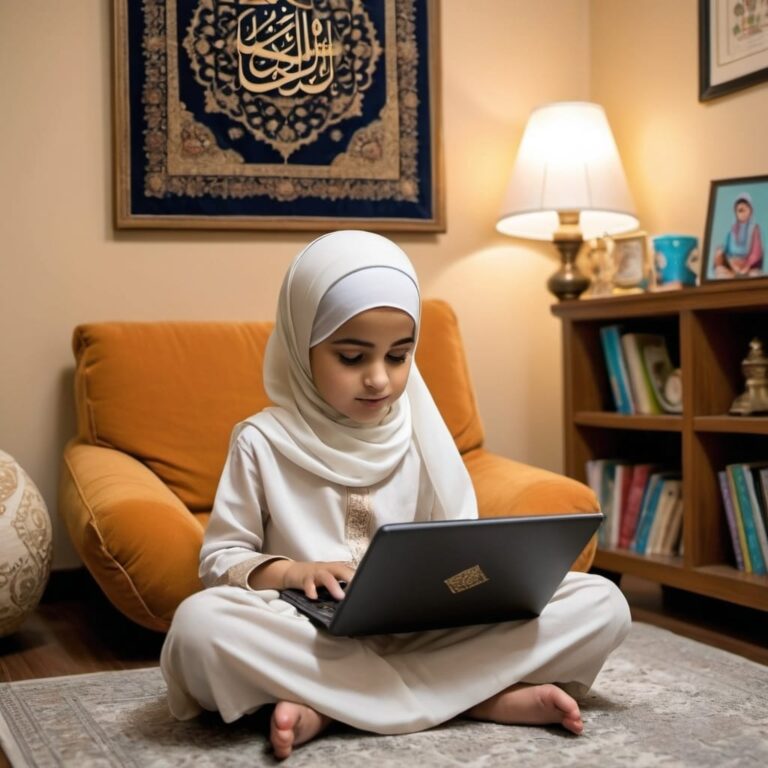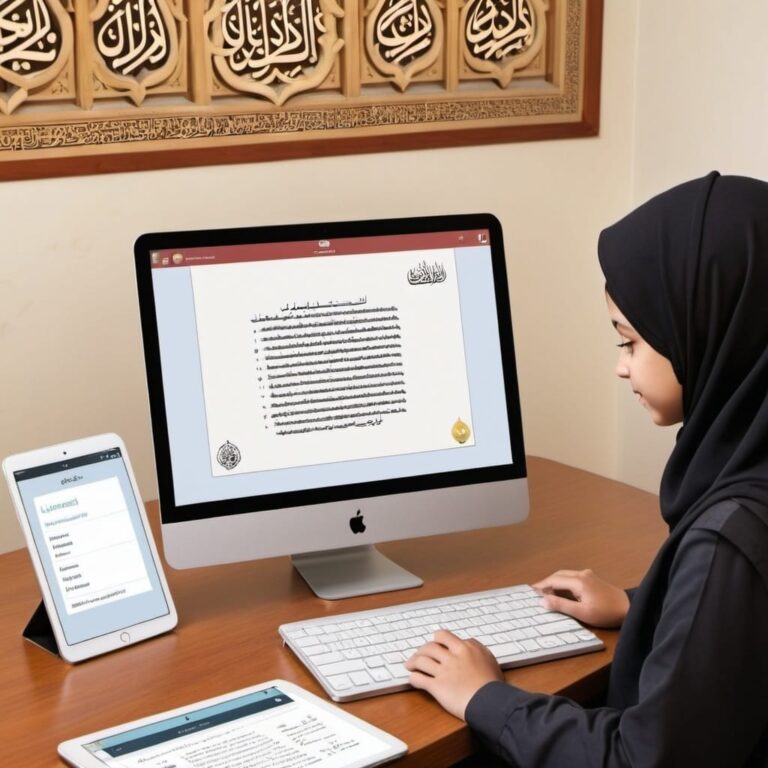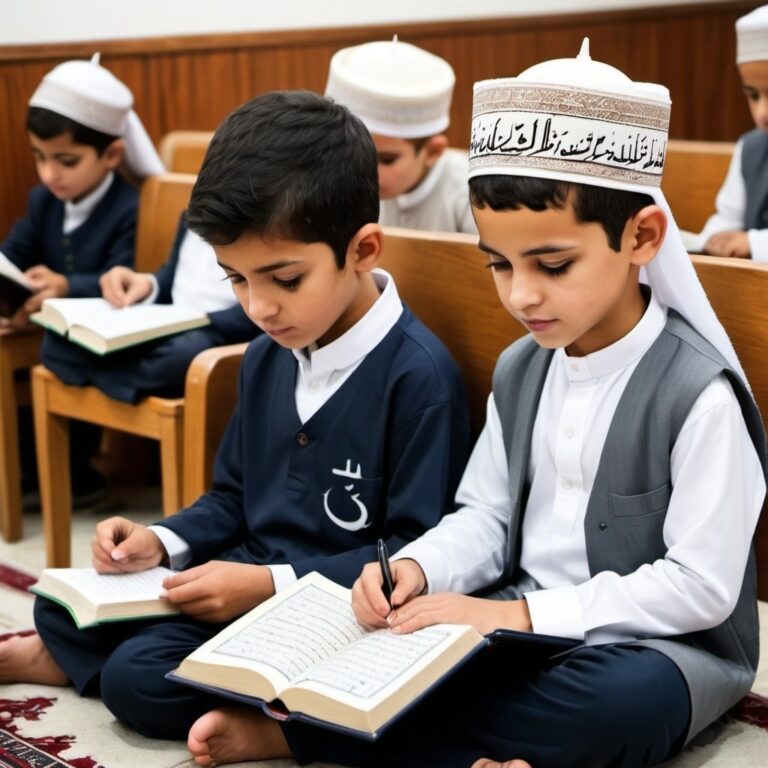Building Bridges Interfaith Dialogue Through the Lens of the Quran
Introduction to Interfaith Dialogue and Its Importance within the Modern World
In state-of-the-art diverse and interconnected world, interfaith dialogue has emerge as an increasing number of vital. This dialogue refers back to the open and respectful alternate of ideas and beliefs between individuals from exclusive non secular backgrounds. It aims to foster mutual expertise, recognize, and cooperation amongst various religion communities.
Interfaith speak is crucial for selling peace and concord in a global society marked through religious variety. It enables bridge gaps, dispel misconceptions, and construct relationships based on shared values and common humanity. By engaging in such dialogue, people can learn from each other, recognize exclusive views, and paintings collectively to deal with not unusual demanding situations.
This blog put up ambitions to explore interfaith talk via the lens of the Quran. We will study how Islamic teachings encourage optimistic conversations with people of different faiths, highlighting ancient examples and providing practical hints for conducting meaningful communicate these days.

Understanding the Quran A Brief Overview for Non-Muslims
The Quran is the holy e-book of Islam, believed to be the literal phrase of God as discovered to the Prophet Muhammad over 1,400 years in the past. It serves as a complete guide for Muslims, overlaying aspects of faith, morality, law, and personal conduct. The Quran is written in Arabic and is split into 114 chapters, called surahs, each various in length and issues.
For non-Muslims, know-how the Quran can provide treasured insights into the middle ideals and values of Islam. The textual content emphasizes the oneness of God, the importance of justice and compassion, and the want to live a righteous existence. It also addresses various elements of human life, such as own family, network, and social responsibility.
The Quran encourages fans to are seeking for understanding, reflect on introduction, and engage in dialogue with others. By exploring its teachings, non-Muslims can benefit a deeper appreciation of Islamic ideas and the methods in which they make a contribution to fostering interfaith knowledge.
The Quran’s Perspective on Interfaith Dialogue
The Quran places brilliant importance on interfaith speak, advocating for respectful and non violent interactions with people of all faiths. Several verses spotlight the importance of enticing with others in a spirit of mutual admire and information. For example:
- Surah Ankabut (29:46) states, “And do no longer argue with the People of the Scripture except in a manner that is great, besides for individuals who dedicate injustice amongst them. And say, ‘We consider in that which has been discovered to us and discovered to you. And our God and your God is one; and we are Muslims [in submission] to Him.'”
This verse emphasizes the need for respectful talk, acknowledging the commonalities among Islam and other Abrahamic faiths. It encourages Muslims to engage with people of different ideals in a manner that promotes knowledge and harmony.
- Surah Al-Hujurat (forty nine:13) broadcasts, “O mankind, certainly We have created you from male and female and made you peoples and tribes that you could recognise each other. Indeed, the maximum noble of you within the sight of Allah is the most righteous of you. Indeed, Allah is Knowing and Acquainted.”
This verse highlights the variety of humanity and the importance of learning one another. It underscores that righteousness, no longer religious association, determines one’s the Aristocracy in the eyes of God.
Through these teachings, the Quran offers a framework for Muslims to engage in interfaith communicate, fostering a subculture of recognize, information, and cooperation.
Historical Examples of Interfaith Dialogue in Islamic History
Islamic records is replete with examples of interfaith talk and collaboration. These instances display how Muslim leaders and scholars have historically engaged with people of different faiths to promote mutual information and coexistence.
The Prophet Muhammad and the Christians of Najran
One of the earliest examples of interfaith speak in Islamic records is the come across between the Prophet Muhammad and a delegation of Christians from Najran. This meeting, which happened in Medina, was marked through mutual respect and open speak. The Prophet welcomed the delegation into the mosque, where they engaged in theological discussions and even carried out their prayers.
This event exemplifies the Prophet’s dedication to respectful interfaith communicate and his reputation of the importance of expertise and cooperation among distinct non secular communities.
The House of Wisdom in Baghdad
During the Abbasid Caliphate, the House of Wisdom (Bayt al-Hikma) in Baghdad served as a middle of learning and interfaith dialogue. Scholars from numerous non secular backgrounds, which include Muslims, Christians, and Jews, amassed right here to translate and take a look at texts from unique cultures and civilizations. This collaborative surroundings facilitated the alternate of understanding and thoughts, contributing to advancements in technology, philosophy, and medicine.
The House of Wisdom illustrates how interfaith communicate can cause intellectual and cultural enrichment, benefiting society as a whole.
Andalusia A Model of Coexistence
In medieval Spain, the area of Andalusia became a beacon of interfaith harmony and cooperation. Under Muslim rule, towns like Cordoba and Granada flourished as facilities of gaining knowledge of and way of life, wherein Muslims, Christians, and Jews lived and labored collectively in relative peace.
This duration, regularly called the “Golden Age of Spain,” noticed sizeable contributions from pupils of all faiths, resulting in a wealthy tapestry of highbrow and cultural achievements. Andalusia serves as a historical model of how interfaith talk and coexistence can result in a thriving and rich society.
Common Misconceptions approximately the Quran and Interfaith Relations
Despite the Quran’s clear emphasis on interfaith communicate and recognize for other religions, several misconceptions persist. Addressing those misunderstandings is essential for fostering a more accurate and nuanced information of Islamic teachings.
Misconception 1 Islam Promotes Exclusivity and Separation
Some believe Islam advocates for exclusivity and separation from humans of different faiths. However, the Quran encourages Muslims to have interaction with others in a spirit of mutual appreciate and knowledge. Verses like Surah Al-Hujurat (49:thirteen) emphasize the importance of gaining knowledge of each other and spotting the shared humanity of all people.
Misconception 2 The Quran Calls for Hostility Towards Non-Muslims
A not unusual false impression is that the Quran requires hostility in the direction of non-Muslims. In fact, the Quran promotes non violent coexistence and respectful communicate. For instance, Surah Ankabut (29:forty six) advises Muslims to have interaction with the People of the Scripture in a manner that is high-quality and emphasizes the commonalities among their ideals.
Misconception three Interfaith Dialogue is a Modern Concept
Interfaith speak is frequently perceived as a cutting-edge idea, but historic examples from Islamic history exhibit its lengthy-standing importance. From the Prophet Muhammad’s interactions with the Christians of Najran to the collaborative environment of the House of Wisdom, interfaith speak has been part of Islamic tradition for centuries.
By addressing these misconceptions, we can promote a extra accurate know-how of the Quran’s teachings on interfaith family members and inspire more significant dialogue between one of a kind religion groups.
How to Engage in Productive Interfaith Dialogue Based on Quranic Teachings
Engaging in efficient interfaith dialogue calls for a considerate and respectful method. The Quran offers numerous guiding principles for such interactions, that may help foster mutual information and cooperation.
Principle 1 Approach with Respect and Humility
The Quran emphasizes the significance of drawing close others with appreciate and humility. Surah Ankabut (29:forty six) advises Muslims to engage with people of different faiths in a way that is exceptional, highlighting the want for respectful and thoughtful communicate.
When engaging in interfaith discussions, it’s critical to concentrate actively, acknowledge special perspectives, and avoid confrontational or judgmental language.
Principle 2 Focus on Commonalities
While variations in beliefs and practices may additionally exist, the Quran encourages Muslims to awareness on commonalities with other faith communities. For example, Surah Ankabut (29:46) acknowledges the shared notion in a single God between Muslims and the People of the Scripture.
By identifying and constructing on commonplace values and ideas, interfaith speak can foster a experience of shared motive and cooperation.
Principle three Promote Understanding and Education
The Quran encourages the pursuit of information and expertise. Engaging in interfaith communicate affords an possibility to learn about distinct ideals and traditions, fostering mutual admire and appreciation.
When taking part in interfaith discussions, it is crucial to approach the verbal exchange with an open thoughts and a willingness to research. This can assist dispel misconceptions and construct bridges between specific faith communities.
FAQs on Interfaith Dialogue and the Quran
What is the Quran’s stance on interacting with humans of other faiths?
The Quran advocates for respectful and non violent interactions with humans of other faiths. It encourages Muslims to interact in communicate, construct relationships, and sell information and cooperation.
How can Muslims and non-Muslims have interaction in dialogue in step with the Quran?
Muslims and non-Muslims can have interaction in dialogue by coming near conversations with respect, that specialize in commonalities, and promoting expertise and education. The Quran presents guidance on accomplishing respectful and optimistic interactions.
Are there any particular verses inside the Quran that sell interfaith speak?
Yes, numerous verses in the Quran promote interfaith communicate. For example, Surah Ankabut (29:forty six) and Surah Al-Hujurat (49:thirteen) emphasize respectful engagement and the importance of studying one another.
How need to Muslims respond to complaint in their faith?
Muslims need to respond to complaint in their religion with endurance, recognize, and a willingness to have interaction in optimistic communicate. The Quran advises believers to method such situations with wisdom and expertise.
What role does recognize play in interfaith dialogue based totally on Quranic teachings?
Respect is a essential precept in interfaith speak in keeping with the Quran. Engaging with others in a deferential and considerate way allows foster mutual knowledge and cooperation.
Why is interfaith speak critical in trendy global?
Interfaith communicate is essential in modern day global as it promotes peace, know-how, and cooperation among various spiritual communities. It enables bridge gaps, dispel misconceptions, and construct relationships based on shared values.
How can interfaith dialogue benefit society as an entire?
Interfaith speak can gain society by using fostering a lifestyle of recognize, information, and cooperation. It promotes social harmony, reduces conflicts, and encourages collaborative efforts to cope with not unusual challenges.
What are a few ancient examples of interfaith dialogue in Islam?
Historical examples of interfaith speak in Islam consist of the Prophet Muhammad’s interactions with the Christians of Najran, the collaborative surroundings of the House of Wisdom in Baghdad, and the coexistence of Muslims, Christians, and Jews in Andalusia.
How can people contribute to interfaith dialogue?
Individuals can contribute to interfaith dialogue through carrying out respectful conversations, selling know-how and training, and constructing relationships with humans of various faiths.
What are a few commonplace misconceptions approximately the Quran and interfaith relations?
Common misconceptions approximately the Quran and interfaith family members consist of the perception that Islam promotes exclusivity and separation, requires hostility toward non-Muslims, and that interfaith speak is a present day concept.
How can those misconceptions be addressed?
These misconceptions may be addressed with the aid of promoting correct and nuanced understandings of the Quran’s teachings, highlighting ancient examples of interfaith dialogue, and engaging in respectful and constructive conversations.
What are the guiding principles for engaging in interfaith speak primarily based on the Quran?
Guiding standards for undertaking interfaith speak based totally at the Quran include drawing near conversations with recognize and humility, focusing on commonalities, and promoting understanding and schooling.
How can Muslims build bridges with human beings of different faiths?
Muslims can construct bridges with humans of different faiths via conducting respectful talk, promoting mutual understanding, and collaborating on common dreams and projects.
What assets are to be had for gaining knowledge of greater about interfaith speak and the Quran?
Resources for learning greater approximately interfaith dialogue and the Quran encompass books, scholarly articles, on line publications, and interfaith agencies that sell expertise and cooperation between distinctive religious groups.
How can interfaith speak sell peace and concord?
Interfaith speak promotes peace and harmony with the aid of fostering mutual appreciate, information, and cooperation among various non secular communities. It allows reduce conflicts and construct relationships based totally on shared values.
What function do non secular leaders play in interfaith communicate?
Religious leaders play a critical function in interfaith talk via placing an instance for their groups, promoting expertise and cooperation, and facilitating conversations between one-of-a-kind religion organizations.
How can colleges and academic establishments sell interfaith speak?
Schools and academic institutions can sell interfaith talk via incorporating classes on non secular range, encouraging respectful conversations, and organizing events that deliver collectively students from distinct religion backgrounds.
What are a few a hit examples of interfaith projects round the arena?
Successful examples of interfaith tasks around the sector encompass network service tasks, interfaith dialogue forums, and collaborative efforts to cope with social problems, which includes poverty and environmental sustainability.
How can era help interfaith talk?
Technology can guide interfaith communicate by way of providing platforms for virtual conversations, facilitating access to educational assets, and connecting individuals and corporations worried in interfaith projects.
How can interfaith dialogue make a contribution to a higher future for all?
Interfaith talk can make contributions to a better destiny for all via promoting peace, knowledge, and cooperation amongst diverse non secular communities. It enables build a extra inclusive and harmonious society, where individuals from unique backgrounds can work together to deal with common challenges.
Conclusion Encouraging a Future of Harmony
Interfaith talk, as guided by means of the teachings of the Quran, is an crucial device for fostering mutual knowledge, admire, and cooperation amongst diverse spiritual communities. By conducting meaningful conversations and building relationships primarily based on shared values and common humanity, we can work together to create a extra peaceful and harmonious world.
The Quran’s emphasis on respectful dialogue, historical examples of interfaith collaboration, and practical tips for engaging in efficient conversations provide a strong foundation for promoting interfaith expertise. By addressing commonplace misconceptions and highlighting the blessings of interfaith speak, we are able to inspire more people and groups to participate in these crucial conversations.
As we circulate forward, allow’s maintain to construct bridges, foster mutual recognize, and work together to create a destiny of harmony and cooperation. For those interested in gaining knowledge of greater about interfaith communicate and the Quran or in search of steerage on carrying out significant conversations, extra resources and guide are available via numerous companies and tasks committed to selling interfaith expertise.


